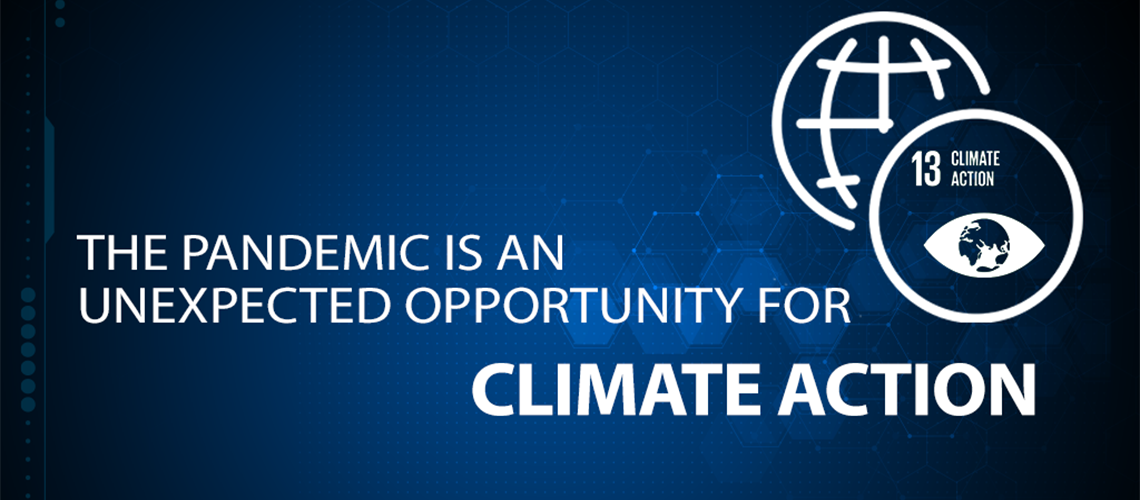 COVID-19 and Climate Action
COVID-19 and Climate Action
The COVID-19 pandemic is disrupting lives and livelihoods around the globe and shaking our economic systems to their core.
Many governments have taken immediate measures to protect jobs and reduce the impact on vulnerable populations. They will also prepare fiscal stimulus packages to restart the economy once the health emergency is over.
But this large increase in public spending and investment should not be used to revert to business as usual. The COVID-19 shock has opened a window of opportunity to scale up urgently needed climate action. Governments and international financial institutions should use the current crisis to prevent future climate crises.
Most countries have national adaptation plans, climate change policies and low-carbon development strategies in place. Even though the need for action is undisputed, funding is often insufficient. When designing their fiscal stimulus packages, governments should now prioritize climate-smart investments. Some of these projects can be prepared and implemented quickly, others will need more time.
1. Invest in renewable energy. There are mature technologies that can be brought to scale. As renewables are often more labor-intensive than fossil fuel-based power plants, this will create urgently needed jobs. In the medium term, increasing access to electricity can stimulate economic growth. For many developing countries, investing in renewable energy will improve energy security, reduce the dependence on fossil fuel imports, and lessen the fiscal burden of fossil fuel subsidies. Clean energy will also reduce air pollution and contribute to better health outcomes in the long run.
2. Invest in low carbon infrastructure. Public works create jobs in the construction sector, which is an important economic pillar in many developing countries. Investments in public transport and solid waste management have a direct positive effect on greenhouse gas emissions. Governments can also provide credit lines to construction companies and households, while requiring that investments comply with building regulations for dealing with natural hazards. Governments should also set and enforce standards for energy efficient designs as well as the use of renewable energy sources and energy efficient equipment. In the medium to long term, creating an enabling environment to promote local green investments and green procurement can further help reduce greenhouse gas emissions.
3. Invest in climate change adaptation. Investments in protective infrastructure, water and sanitation, social housing, irrigation, and ecosystem rehabilitation will not only create jobs but also address basic needs and make people more resilient to the future impacts of climate change. Many of these interventions will take place at the subnational level and can be staffed with local hires whose pay will generate income for local communities. When transferring funds to subnational entities, central governments should earmark them for climate-related investments.
4. Maintain carbon taxes and fuel tariffs. In the current situation, suspending carbon taxes and lifting tariffs on fossil fuel imports has limited economic impact. And while doing little good economically, such measures would send a very wrong signal to consumers and producers. They might also be difficult to reverse down the line.
At this critical juncture, channeling extraordinary public investment into climate action can catalyze the shift toward pathways to more sustainable development.


Join the Conversation